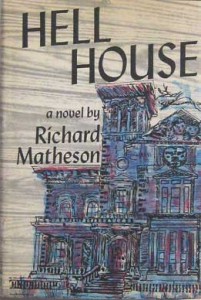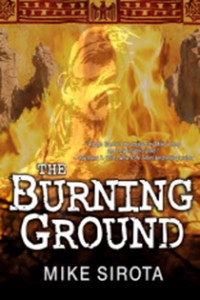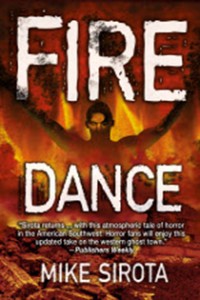I still believe this is what every writer should know. This post first ran in 2014.
In my decades as a writing coach and editor I have worked with first-time writers whose talents and abilities ranged from “I think you should take up needlepoint or jet skiing instead” to “How in heck are you not published yet!” The latter, to be sure, is the rare exception rather than the rule. And even the best of them need work in some area of crafting a solid novel, be it dialogue, pacing, the opening hook, POV, or any of the other elements necessary to make people want to read what we have to say.

One of my all-time favorite page turners.
For some of those writers, it may take one or two—or more—revisions before they “get” what I mean about a specific element. But there is one key bit of advice that I offer to every writer with whom I work, and they all “get it,” because they’ve all been there/done that, as I’m sure you have. I present it in a sort of story form, directed to you, and I’ll do the same here.
One evening you pick up a new book (or your eBook reader) and start reading. Shortly after, you notice that you’re on page 17. Then, you see that you’re on page 19. Oh look, now you’re on page 20, and then 21… Yawn; obviously, this story is not working for you.
Another evening you do the same thing with a thick, four hundred-page novel. You start it on page 1, and the first time you notice how far along you’ve gotten, you’re on page 357. Holy crap, you’ve been turning the pages at Evelyn Wood speed! It’s nearly midnight; the cat hasn’t been fed, and your spouse has gone to bed without you. Must be a damn good story, ya think?
Our goal as writers, I tell everyone, is personified in these two examples: you want to make your readers feel that they are PARTICIPATING IN A STORY rather than just reading a book. That is the best of what we novelists can give. When a reader is furiously turning the pages to find out what happens next, you have succeeded.

Another favorite page turner.
Through the years I have found that, motivated by such a challenge, my most successful writers work even harder at overcoming their weaknesses while, naturally, building on their strengths. There are no shortcuts to becoming a good writer; you’ve got to put in the WORK, and that takes time. Consider this: you want to play a piano concerto at Carnegie Hall? Start practicing now, and maybe, in twenty-five or thirty years, you just might get there.
AN APOCRYPHAL TALE?
Relevant to the above, you should understand that mastering all the elements of a novel may not be enough for those who hold our publishing future in their hands. Let me go all Hollywood here and say that the story I’m going to relate is “based on true events.” In this case it’s the exact number of submissions that may be a bit off, and there may be a couple of minor variants, but you’ll still get the point.
An aspiring author submitted her work to twenty literary agents and/or publishing house editors. She received twenty rejection letters. Half of them said (to paraphrase), “While your plot showed promise, the majority of your characters were ineffective and not believable.” The other half: “You do well in developing your characters, but unfortunately the story did not work for us.” Make of that what you will.
 I’ve written enough novels over the years to have garnered a potload of rejections, all of which I still possess. After hearing that story a long time ago and feeling a bit incredulous I went through my collection and found that, with certain submissions that earned me a large number of rejections, there were quite a few contradictory comments. Must be true, I figured.
I’ve written enough novels over the years to have garnered a potload of rejections, all of which I still possess. After hearing that story a long time ago and feeling a bit incredulous I went through my collection and found that, with certain submissions that earned me a large number of rejections, there were quite a few contradictory comments. Must be true, I figured.
But it also gave me an idea. If the publisher or agent focused only on one issue, and that issue was easily fixable, why not just fix it and resubmit? I ran that question by my then-agent, Donald Maass, who said that he’d never tried it. At the time he’d just gotten back a project of mine that noted one minor issue as being the reason for the rejection. I rewrote the passage, and Don agreed to resubmit it as an experiment. It came back, of course, with a terse, handwritten note on the first page of the manuscript: “We don’t think you understand—we don’t want to publish this.” Okay then—but why not just say so in the first place?
“I COULDN’T PUT YOUR BOOK DOWN!”
 That is one of the nicest compliments an author can receive. Being literal (not too often, I hope) I sometimes wonder, did they read it from cover to cover in one sitting, or did they—more figuratively—read it over the course of two or three days? Then I smack myself upside the head, ask the rhetorical question, “Does it really freaking matter?” and get on with my life.
That is one of the nicest compliments an author can receive. Being literal (not too often, I hope) I sometimes wonder, did they read it from cover to cover in one sitting, or did they—more figuratively—read it over the course of two or three days? Then I smack myself upside the head, ask the rhetorical question, “Does it really freaking matter?” and get on with my life.
In any case, I’ve been fortunate enough to have had that said to me quite a few times over the years. Many of those kudos came for my two ghost stories, Fire Dance and The Burning Ground, during their earlier publication. Both of them are now available again in Kindle eBook and paperback. Have fun turning the pages!
